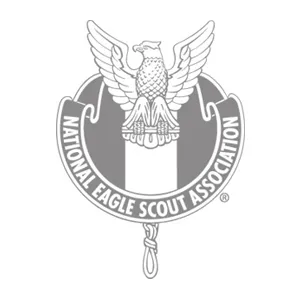In need of Triangular Fibrocartilage Complex Tear Treatment in Dallas Forth Worth? If so, the Loredo Hand Care Institute is here to help.
Dr. Pedro Loredo is a hand specialist serving the Dallas/Ft. Worth area. Call now to learn more about our Dallas TFCC treatment options.
What are Triangular Fibrocartilage Complex Tears of the Wrist?
The triangular fibrocartilage complex (TFCC) is a structure made up of several ligaments and cartilage whose primary function is to suspend the ends of the radius and ulna arm bones over the wrist. The TFCC is also responsible for load transmission in the wrist and makes it possible for the wrist to move in six different directions, including bending, straightening, twisting and side-to-side motions. The TFCC is located on the outer side of the wrist below the little finger.
A tear of the TFCC occurs when a traumatic injury is sustained to this region or when there is a fall onto the outstretched, pronated (palm-down) hand and accompanying hyperextended wrist. A TFCC tear is the most common cause of persistent, unexplained wrist pain.
What Are the Symptoms of Triangular Fibrocartilage Complex Tears of the Wrist?
Symptoms of TFCC Tears include the following:
- Pain in the wrist on the ulnar (little finger) side, especially with an activity which requires wrist/forearm rotation such as opening a doorknob or using a can opener
- Swelling and/or tenderness of the wrist on the ulnar (little finger) side
- Clicking, snapping, or crackling sensation or sound in the wrist the ulnar (little finger) side
- The trouble with wrist rotation
- Muscle weakness in the wrist or a feeling that your wrist is going to “give out”
- Diffuse wrist pain, meaning the pain is diffused throughout the entire wrist area and cannot be pinpointed to one area
Dr. Loredo’s Approach to Treating Triangular Fibrocartilage Complex Tears of the Wrist
Non-Surgical Treatment Options
Depending on the severity of the condition, Dr. Loredo may attempt to treat non-surgically. This option involves a steroid injection followed by the use of a splint to support the wrist.
Surgical Treatment Options
In the event that non-surgical treatment is ineffective, Dr. Loredo will repair the TFCC tear(s) with minimally-invasive arthroscopic surgery. This procedure involves placing the wrist in a “tower” to provide access to the small wrist joint and allow for examination using a scope. Wrist arthroscopy is the gold standard with respect to diagnosing and repairing triangular fibrocartilage complex tears of the wrist.
What Can I Expect After Surgery?
A combination of steroids and local anesthetics are placed in the wrist for pain relief and in most cases, the patient will wear a splint for approximately one week to allow for proper healing.
Frequently Asked Questions
What causes a tear in the Triangular Fibrocartilage Complex (TFCC)?
A tear in the TFCC most often occurs as the result of a traumatic injury or fall onto an outstretched, pronated (palm-down) hand while the wrist is hyperextended.
Are certain groups of people at higher risk for TFCC tears?
Yes. Athletes who participate in high-impact and physically demanding sports, such as gymnasts, cheerleaders, tennis players, and weight lifters, are at greatest risk for TFCC injuries. TFCC injuries can also be seen in manual laborers, people who have been involved in motor vehicle accidents, or individuals who regularly perform activities which require wrist loading/twisting.
How do I know if I have a TFCC tear?
TFCC tears can only be definitively diagnosed by a doctor through arthroscopic examination. We recommend seeking the opinion of a medical professional if you are experiencing any of these symptoms:
- Pain, swelling, tenderness or clicking, snapping, or crackling sensation in the wrist on the ulnar (little finger) side, especially with an activity which requires wrist/forearm rotation such as opening a doorknob or using a can opener
- The trouble with wrist rotation
- Muscle weakness in the wrist or a feeling that your wrist is going to “give out”
- Or diffuse wrist pain, meaning the pain is diffused throughout the entire wrist area and cannot be pinpointed to one area
Featured Story - Brian, TFCC Tear

Contact the Loredo Hand Care Institute
If you are experiencing any of the symptoms associated with Triangular Fibrocartilage Complex Tears of the Wrist or would like to learn more about our practice in the Dallas area, please contact us today to schedule an appointment and get your free insurance check.
